What to do if it hurts when urinating. Causes of pain
Pain present in acute and cystitis chronic course, but they have different character. With sudden and sharp pains during urination, burning sensation before and after it, pain speaks of severe inflammation – acute cystitis. On palpation painful place the condition worsens even more. Sometimes the pain is accompanied by:
- urinary incontinence - involuntary outflow of the first jet;
- dysuria - frequent painful urination in small portions;
- not completely emptied of fluid in the urea;
- fever with a temperature up to 37.5 ° C.
Blood clots appear in the urine, it becomes the color of meat slops. At chronic cystitis persistent, dull pains false calls to urination. Urine changes its composition, it increases the level of leukocytes and bacteria.
emergency therapy
In case of acute pain and fever, it is necessary to call a doctor at home. You need to use his appointments and recommendations on how to relieve the pain of cystitis. First of all, you will need:
How to relieve the pain of cystitis at home?
Cranberry
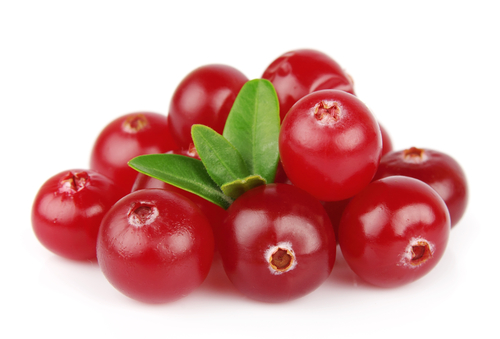 Cranberry extract with proanthocyanides in the composition can suppress the reproduction of bacteria and prevent them from hiding in the wall or cells, thereby alleviating their condition.
Cranberry extract with proanthocyanides in the composition can suppress the reproduction of bacteria and prevent them from hiding in the wall or cells, thereby alleviating their condition.
Herbs
You can reduce spasms and pain during urination with an infusion of the collection: mix chamomile flowers and horsetail in equal weight fractions. Brewed with boiling water like tea and drink 3 tbsp. per day in small sips.
Diet
At home, you need to connect a milk diet to bed rest and therapy, fresh fruits, vegetables. Reduce, and it is better to exclude salty and fried, spicy and spicy dishes for the duration of treatment.
Need to drink a lot
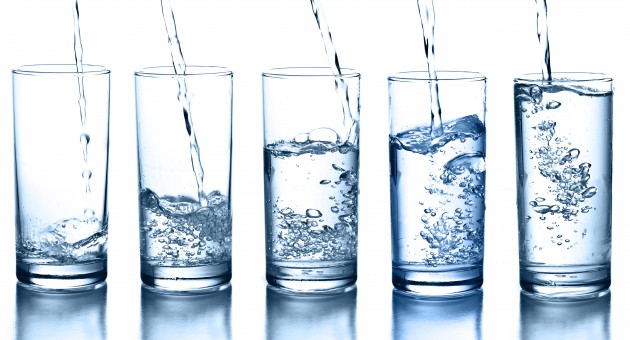 Can't refuse plentiful drink, despite painful urination. Discomfort will decrease with each glass mineral water without gas per hour. Liquids: water, juices, compotes, fruit drinks, teas (especially green), special infusions and decoctions that have a diuretic and disinfectant effect will help free the body from microorganisms and their metabolic products that irritate and inflame the bladder wall, as well as remove carcinogens, toxins .
Can't refuse plentiful drink, despite painful urination. Discomfort will decrease with each glass mineral water without gas per hour. Liquids: water, juices, compotes, fruit drinks, teas (especially green), special infusions and decoctions that have a diuretic and disinfectant effect will help free the body from microorganisms and their metabolic products that irritate and inflame the bladder wall, as well as remove carcinogens, toxins .
Bathing
Pain in cystitis is quickly relieved by sitz baths with the addition of manganese or herbal decoctions. You can get rid of pain and muscle spasm with two tablets of No-shpa and rectal suppositories based on Papaverine, but again, provided there is no blood in the urine. Antispasmodics relax the walls of blood vessels, and this can cause a new wave of bleeding.
Pharmacy preparations
Furodonin should always be in home first aid kit. It is taken 1 tablet every 2 hours for increased urination. Simultaneously with the antibiotic Nalitsin, a heating pad is placed and an infusion of the bear's ear is taken. The herbal preparation Cyston helps to get rid of pain, teas from plants such as plantain, thyme, bearberry, calendula, chamomile and St. John's wort. They can be mixed in equal parts by weight and steamed like tea (1 tbsp per 1 tbsp boiling water).
Rose hip
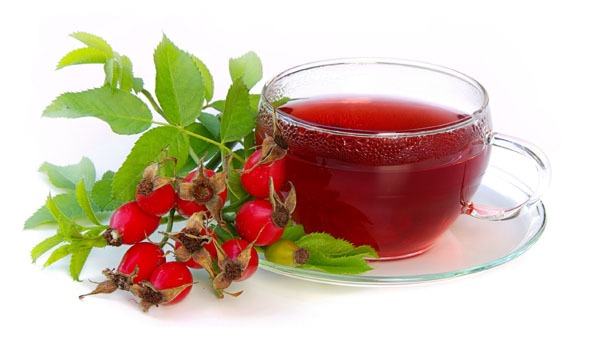 It should be taken 1/3 st. / 3 times a day. You need to drink not only a decoction of rose hips, but also its crushed roots - 2 tbsp. l. for 1 st. boiling water. Infuse for 2 hours in a warm place and separate from the thick. Take half a glass before meals 4 times a day.
It should be taken 1/3 st. / 3 times a day. You need to drink not only a decoction of rose hips, but also its crushed roots - 2 tbsp. l. for 1 st. boiling water. Infuse for 2 hours in a warm place and separate from the thick. Take half a glass before meals 4 times a day.
teas
Medicinal herbs: corn silk, plantain, lingonberry leaf, parsley are well removed pain when making tea.
For the relief of acute and chronic pain complex treatment of microbial-inflammatory process is provided. At the same time, they correct metabolic disorders, microcirculation is restored, and regenerative processes inside the bladder are stimulated.
In prevention, comprehensive measures are aimed at increasing the immune forces of adults and children, as well as treatment acute infections and personal hygiene.
Soreness in the lower abdomen and cramps - signs inflammatory response in or around the bladder, more common in women. To get rid of pain two types of therapy can be carried out: symptomatic and etiotropic. The first type of therapy will remove the symptoms, but preserve the causes of the disease, therefore, after the end of the drug, pain and cramps will quickly return again. Carrying out etiotropic therapy will help get rid of the disease itself, since the causative agent of inflammation will be destroyed.
Pain in the lower abdomen and frequent urge to urinate are the first signs of cystitis
First aid in the absence of medicines
It is not always possible to drink medicine, so know what to do and how to relieve cystitis pain at home.
- Use heat in its different variations:
- Attach a warm heating pad with water or hot sand, salt to the lower abdomen. Keep it like that for twenty minutes, then remove it. Do not heat up when elevated temperature so as not to worsen the condition.
- Warm your feet in warm water, which will help redistribute blood in the body, so pain attack will subside after a while. During painful menstruation in women, the attack will also decrease with warm foot baths.
- Hot herbal teas help relieve an acute pain attack, providing an antispasmodic property, and useful material herbs provide anti-inflammatory therapy.
Do not visit baths, saunas and baths so that the infection does not spread, this is especially possible in women due to the characteristics of the body!
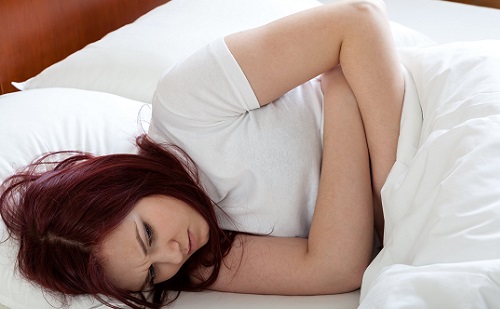
Etiotropic therapy
Those who want to get rid of inflammation need to carry out complex treatment and with the use of different drugs which will depend on the type of pathogen. It is necessary to determine the pathogen, otherwise the treatment will not make sense. The infection is determined in the laboratory by collected urine. drug therapy allowed to be carried out at home, if there are no complications.
Antibacterial therapy
When identifying the bacterial flora, you need to find out the sensitivity to the drugs, otherwise the treatment will be pointless, and this will not help to remove the symptoms. At home, it is difficult to determine the infection, so you need to consult a doctor. Terrible, but reliable sign bacterial infection is the presence of pus in the urine, therefore, upon detection this sign you can start taking antibiotics, and you need to urgently go to the doctor!
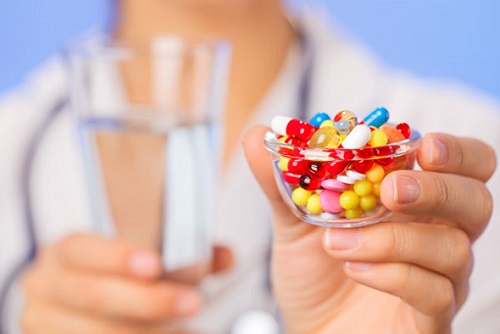
Antiviral therapy
- "Viferon".
- "Cycloferon".
- "Kogacel".
- "ingaverin".
- "Interferon".
The drug is prescribed by a doctor, after several doses of medication, acute pain will be relieved like a hand.
Antifungal therapy
It is difficult to treat cystitis caused by fungi in order to ease the pain attack, in this case symptomatic therapy is needed.
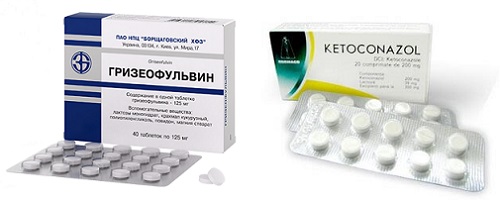
Fungal cystitis is often treated with Ketoconazole and Griseofulvin
Antifungals:
- "Ketoconazole".
- "Griseofulvin".
This group of drugs is dangerous for women because it has teratogenic properties.
Symptomatic therapy
Painkillers are helpers for women and men who do not know how to relieve cystitis pain quickly. Medicines that relieve pain can be analgesics or antispasmodics.
Non-narcotic analgesics
These drugs are prescribed for severe pain, often on the recommendation of a doctor. They are only an anesthetic, they do not affect other systems in any way, therefore they will not provide a significant improvement in the condition. They can be used if there are no more drugs, and the attack of pain is acute.
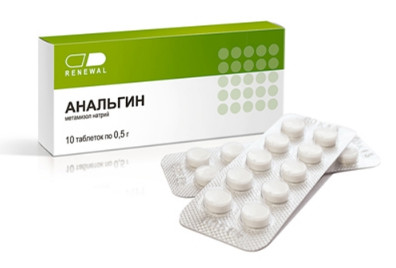
Analgin helps relieve severe pain in cystitis
When choosing between drugs of this group and other painkillers, it is better to abandon non-narcotic analgesics.
- Acetylsalicylic acid and its derivatives ("Aspirin", "Citramon", "Akofin"). Patients with bronchial asthma especially should be careful when taking, as they can develop aspirin asthma!
- "Analgin" is used, but hospitals are starting to refuse it.
Group of non-steroid drugs
Non-steroidal anti-inflammatory drugs can reduce acute pain and have an anti-inflammatory effect. Drugs can be used if there are no contraindications and individual intolerance, as they have side effects.
- "Ketanol" has a pronounced analgesic effect among NSAIDs and is widely used precisely as a drug for relieving acute pain.
- "Nimesulide" and its analogues.
- "Ibuklin" and "Next" are combined drugs that have pronounced analgesic and antipyretic properties.
NSAIDs are best used as directed by a doctor.
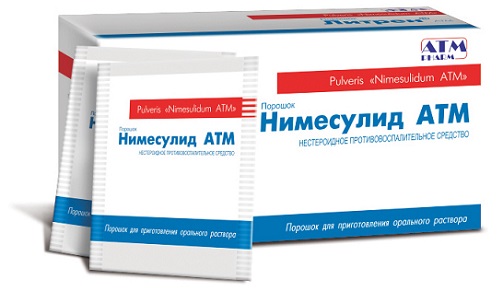
You can relieve inflammation with Nimesulide
Antispasmodics
- "Papaverine".
- "No-shpa."
- "Platifillin".
- "Baralgin".
- Spazmalgon.
- "Bishpan".
- "Nikospan".
These drugs can relieve acute pain if it is caused by a spasm, which is not always the case. It is important to be able to distinguish spastic pain from other types. An attack of cystitis can overtake suddenly, like any disease. Be careful and start treatment at the first signs of the disease so that the chronic form does not develop.
What can provoke the development of cystitis and what symptoms will be observed in this case - all this can be found in the video below:
- cloudy urine;
- Pain in right side when urinating;
- Frequent urge to urinate;
- Temperature increase;
- Pain in the lower abdomen.
If you notice these signs in yourself, you should immediately consult a doctor. Do not self-medicate if you do not know your diagnosis.
What can aggravate:
- non-compliance with personal hygiene;
- hypothermia, and what is most dangerous - hypothermia of the genitals;
- decreased immunity;
- unprotected intercourse.
First aid for cystitis in women
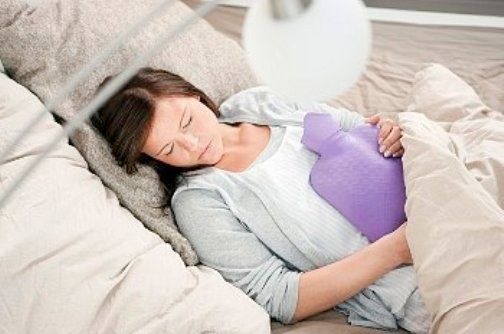 In case of exacerbation, it is urgent to consult a doctor. While waiting for it to arrive ambulance or if you can't this moment visit a doctor, follow these tips:
In case of exacerbation, it is urgent to consult a doctor. While waiting for it to arrive ambulance or if you can't this moment visit a doctor, follow these tips:
- Observe bed rest. Do not do it sudden movements and don't do physical work.
- Avoid spicy and fried foods. Do not drink alcoholic beverages.
- Drink as much liquid as possible. It can be juices, compotes, fruit drinks, tea. Fresh dairy products are also beneficial.
- Use a heating pad. Or use heat in all its variations, such as warm showers, foot baths. The exception is a bath, this can only accelerate the reproduction of the infection.
First medical care with cystitis, women may have antispasmodics.
How to get rid of cystitis pain
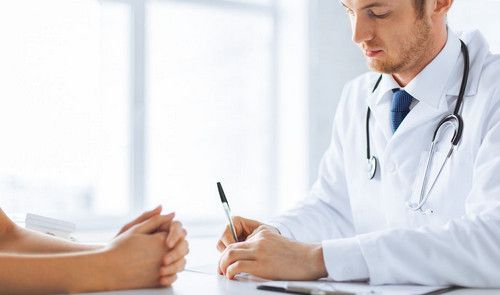 To get rid of the disease, it is necessary to treat the focus of inflammation itself. To do this, you should consult a doctor so that he can prescribe treatment for you. Most often, the first antibacterial help for cystitis are the following drugs:
To get rid of the disease, it is necessary to treat the focus of inflammation itself. To do this, you should consult a doctor so that he can prescribe treatment for you. Most often, the first antibacterial help for cystitis are the following drugs:
- "Suprax". Semi-synthetic antibiotic of the 3rd generation. It has a slight inhibitory effect on the intestinal microflora.
- Monural. Good antibiotic broad spectrum of action for the treatment of infections of the lower urinary tract. Quickly affects the microorganisms that cause cystitis. Take it once a day, preferably at night. The drug is an antibiotic, therefore it is contraindicated in children and pregnant women.
- Furadonin. Antimicrobial agent. Destroys the cells of dangerous microorganisms, after which they die. Course treatment is prescribed. Has side effects including allergic reactions, nausea, headaches.
- "Nitroxoline". Antimicrobial medicinal product. Antibiotic. Side effects appear on rare occasions.
- "Levomycetin". Broad spectrum antibiotic.
- "Palin". Antibacterial drug.
Antibiotics can only be prescribed by a doctor. Course treatment is required.
How to relieve pain with cystitis with medications
Painkiller for cystitis:
- "Ketonal". Tablets have an analgesic, anti-inflammatory and antipyretic effect.
- "Nimesulide". Included in many drugs. Can relieve pain and reduce inflammation.
- "Ibuprofen". Has an analgesic effect. Ibuprofen should not be taken late term pregnancy and acute illnesses stomach.
- "Ibuklin". Combined drug. Relieves pain quickly.
- "Nimesil". Nimesil will help with cystitis to relieve acute pain.
Spasmolytic drugs can relieve an attack of cystitis caused by spasm:
- "No-shpa", "Drotaverin". Contraindications: kidney failure and etc.
- "Papaverine". Contraindication is hypersensitivity to components, etc.
- Spazmalgon. Contraindications are intestinal obstruction, atony of the bladder, renal failure, etc.
With cystitis caused by a fungus, antifungal therapy will be the first aid:
- "Nystatin". When cystitis is used in the form of an ointment, vaginal suppository, anal suppositories, tablets. It is used to treat cystitis, which has a fungal nature.
- "Ketoconazole". Used for prevention.
- "Griseofulvin". Used for treatment and prevention.
For severe pain quick help with cystitis, there will be the use of "Analgin" and "Paracetamol".
What is better than the rest helps with cystitis
The best among antibiotics are Suprax and Monural, they have a quick positive effect in the direction of treating the disease, and also have the least effect on the microflora of the body, unlike their counterparts.
"Ketonal" and "Nemisil" will carry out anesthesia without harming the body.
"No-shpa" and "Drotaverin" should always be with any woman. They will answer the question of how to quickly relieve the pain caused by cystitis or menstruation.
How to relieve cystitis pain at home
warming up. Warming up will not get rid of the disease, but will help reduce pain. Heat has an antispasmodic effect. However, thermal exposure will greatly harm if applied at high temperature and headache.
Heat Treatments:
- Use a heating pad at a temperature of 38-40C. It must be filled with water or sand. Can be replaced with a bottle of hot water. Or with a dry heating pad, for this you need to fill a cloth bag (or a regular sock) with salt, sand or even rice, and then heat it up in the microwave.
- Warm foot baths. Observe temperature regime, do not heat water above 38C. After the procedure, you should wipe your feet dry, put on socks and leave your feet warm for some more time.
- A warm shower can help relieve the pain and spasm of cystitis in women. But it is better to limit yourself to 10 minutes, because otherwise you can only accelerate the reproduction of the infection.
herbal tea. Drink at least 2 liters of fluid per day. This may include herbal decoctions to help relieve the symptoms of cystitis. Herbs contain required list vitamins that will help strengthen the immune system, enhance the work of the body, improve it.
The following herbs are used: juniper, horsetail, raspberry, nettle, oats, dogrose, plantain, bearberry, lingonberry, yarrow, aspen, licorice root, parsley, harrow leaves, aloe, cornflower flower, lemon balm, thyme, peppermint, hydratis, echinacea . These herbs have analgesic, anti-inflammatory, diuretic, antiseptic, disinfectant, antimicrobial effects on the body, which helps to reduce the manifestation of the disease.
Dried or well-washed fresh herbs should be poured with boiling water and boiled for a while, from 7 to 15 minutes. Leave to cool and infuse, then strain the broth. Drink the resulting tea half an hour before meals. Adding propolis or honey will not hurt. Tea with these ingredients is good medicine in many diseases.
Physiotherapy for cystitis
Physiotherapy, if used directly with drugs, helps to deliver active substance directly to the site of inflammation. These procedures are prescribed strictly by the attending physician.
A complex of physiotherapy prescribed for cystitis:
- Laser and short-pulse electroanalgesia. They have an analgesic effect. The bottom line is the impact on the painful area of the body with very short pulses;
- Laser magnetotherapy. Strengthens the immune system, stimulates the process of cell regeneration, eliminates pain. Affects a person with several types of radiation at once;
- Sinusoidal modulated currents. Relieve spasm, increase the tone of the ureter;
- Endovesical phonophoresis. During the procedure medical preparations are injected into the deep layers under the skin, which contributes to their better assimilation and strengthening their action.
Video about cystitis
What to do after cystitis, so as not to get sick again
The most common cystitis is chronic illness. How to reduce the consequences and prevent the recurrence of the disease will suggest the following tips:
- Don't overcool. It is especially necessary to warm up well in winter, because it is better to walk healthy in warm pants than with sharp pains but in a skirt.
- Use condoms. They are not only a means of contraception, but also protect you from STDs and many other infectious diseases.
- Observe personal hygiene. Especially during menses.
- Limit your intake of spicy, fried, salty foods. Do not abuse alcohol.
- Drink the required amount of liquid per day.
- See your doctor periodically.
Consequences of inaction
Severe pain in the lower abdomen with cystitis is only the least that negligence in treatment can lead to. Do you already feel like your back and kidneys hurt? This is already a bell that the disease is going higher, because if the kidneys hurt during cystitis, then this may be a sign of pyelonephritis, i.e. kidney inflammation.
Also in the future, a disease such as paracystitis may appear. The worst can be infertility. You need it? Therefore, do not be afraid of doctors. At the first sign of illness, an emergency call and an urgent treatment process are needed. Do not neglect your health, and then you can live peacefully without pain.
Today, many people, especially girls, are wondering how to relieve the pain of cystitis. Almost every fifth girl had a chance to suffer one or another form of cystitis, delivering severe discomfort and pain sensations.
cystitis as a disease
cystitis - inflammation infectious nature affecting the walls of the urethra. Urological practice lists it as one of the most frequent illnesses. Its culprits are microorganisms, viruses, but most often it is caused by Escherichia coli.
For the occurrence of the disease, the presence of predisposing factors is necessary: a decrease in the body's immune forces, chronic stress, hypothermia, incorrect reception antibacterial drugs, neglect of personal hygiene, sedentary and sedentary image life, overwork, hypovitaminosis, injuries due to urea catheterization, various instrumental and surgical interventions.
Women get infected more often than men. This has features urinary organs: short and wide urethra and the proximity of the genitals to the opening of the urethra.
Signs of the disease
Cystitis comes in two forms: acute and chronic. To determine this disease in yourself, you need to know its manifestations.
The occurrence is associated with the influence of a provoking factor. Characterized frequent urges to the emission of urine, and if inflammatory process pronounced, the interval can be reduced to 5-10 minutes. During the process itself, pains (cramps) are disturbing, especially at the end of urine output. There is a feeling of incomplete release of the urea.
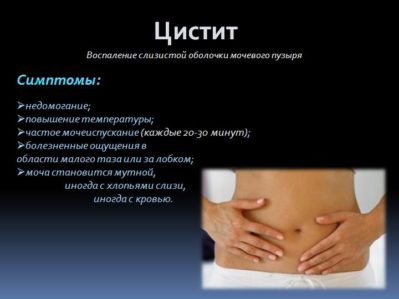
Pain in cystitis occurs both during and after urination. Usually it is pulling, sharp, cutting pains in the lumbar and pubic regions. Urine becomes cloudy, at the end of urination, a few drops of blood may appear. There are symptoms of malaise, subfebrile temperature, weakness.
can take the form independent disease or a complication of an existing chronic pyelonephritis, kidney stones, neoplastic diseases urinary system). Symptoms match acute form, but less pronounced.
Methods of dealing with the disease
The disease can appear at any time, you need to know how to relieve the pain of cystitis.
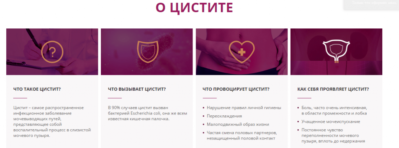
There are many ways to help relieve pain and eliminate symptoms of the disease. Conventionally, they can be divided into two groups:
- Drug treatment (antibiotics, nitrofuran preparations, various uroseptics).
- Treatment folk remedies(tinctures, phytotherapy, heating pads).
Medical pain relief
How to quickly relieve pain? You can get rid of it with the help of several groups of drugs - these are non-steroidal anti-inflammatory drugs (NSAIDs) and antispasmodics. One of the most common drugs of the first group is Ibuprofen. The main task of the drugs in this group is to reduce inflammation and anesthetize, which is what the patient needs. The second group includes Drotaverine (No-shpa) and Papaverine.
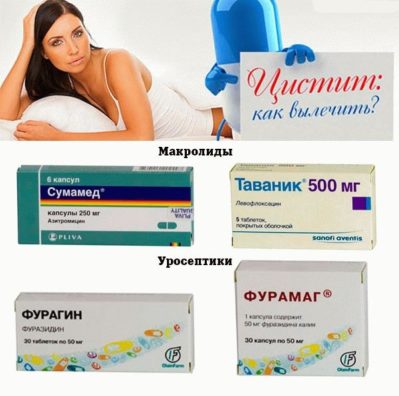
Spasmodic under the influence of drugs smooth muscle the bladder and its vessels relax, which allows you to eliminate pain. We must not forget that these drugs have side effects. That's why frequent use contraindicated. But it's just symptomatic therapy, needed complex application antibacterial and herbal preparations, diet therapy, physiotherapy.
Antibiotic therapy depends on the nature of the pathogen and the positive dynamics in the treatment. Preference is given to low-toxic, safe, easy-to-use drugs.

The most commonly used antibiotic drugs are:
- Monural is a broad-spectrum agent, it has been tested in the leading clinics of the world, a lot positive feedback. Side effects are minimal, can be used by pregnant women.
- Furagin and Furadonin are also broad-spectrum. Because of their side effects are used less frequently than Monural.
- Palin is a new generation drug (capsules, tablets, suppositories). It will remove acute paroxysmal pain.
- Solutab (granules that dissolve in water). Due to the ease of use, it can be given to infants.
Everything today more people preference is given herbal preparations. It's connected with big amount positive effects and the absence of side effects.
These substances are able to remove pain, cramps during and after urination. They have an anti-inflammatory and diuretic effect. Enhance the effect of antibiotics. They have immunomodulatory and litholytic (dissolution of stones) properties.
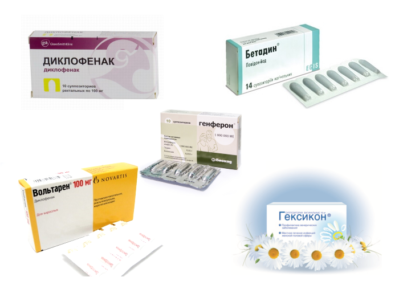
One of the best means For complex treatment infection is cranberry extract. Contains substances inhibiting the growth of bacteria, prevents the attachment of microorganisms to the walls of the urea. Most doctors recommend taking Kanefron N for both the treatment of cystitis and its prevention. Able to prevent inflammation and the development of pyelonephritis. Cyston is also prescribed, however, with acute conditions it is contraindicated: it has a litholytic effect. It is possible to use Phytolysin paste, which contains an extract from the fruits of parsley, birch, horsetail. Among girls suffering from severe pain, drugs Urolesan and Furamag have proven themselves well.
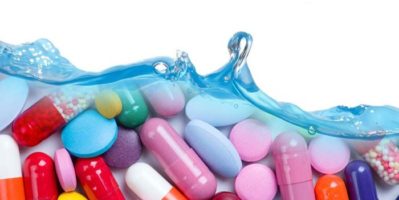
Physiotherapeutic procedures have practically no contraindications for cystitis. Are carried out on an outpatient basis. These procedures include: electrophoresis, magnetotherapy, magnetophoresis, etc. In combination with antibiotic therapy lead to improvement in 3 days.
How to relieve pain in cystitis at home
Illness can strike at any moment. It is important to know how to quickly relieve an attack of pain if there are no medicines at hand.
- Has an effective analgesic effect dry heat. bottle with warm water or a heating pad should be placed in the lower abdomen or between the legs. Keep for 30-40 minutes. If necessary, repeat the procedure.
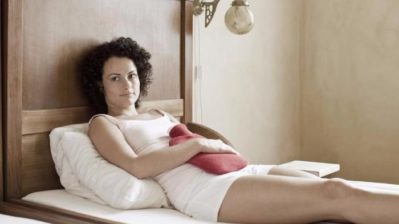
- Relieve pain and spasm warm drink. Must be consumed per day a large number of warm liquid, not just water. You can drink urological fees, extracts, tinctures. It is recommended to drink decoctions of chamomile, bearberry, horsetail. Useful cranberry juice, a decoction of St. John's wort. You can also mix in warm water (1 cup) a tablespoon of honey and a teaspoon apple cider vinegar, take up to complete cure. Grind cannabis seeds and mix with water or milk.
- Warm water is recommended to relieve symptoms. foot baths or shower. However, this should not be abused. Heat can only exacerbate swelling and inflammation.

- It is very important to follow a diet. Exclude the use of spicy and overcooked foods, sour, alcohol, carbonated drinks, very salty foods, canned food, pickled foods.
- Wear loose, warm underwear made from natural fabrics.
All of the above methods stop only the symptoms of the disease. In any case, you need to visit a doctor who will prescribe correct therapy and tell you how to get rid of the pain of cystitis. Based on the analysis, the doctor will select essential antibiotic And additional methods treatment. Self-treatment will only lead to a chronic process and frequent relapses.
cystitis is inflammatory disease Bladder. Most often it occurs in women. It's connected with anatomical features female body. The urethra is shorter than in men, so microorganisms easily penetrate into bladder where they begin their development.
Cystitis is manifested by pain and pain in the lower abdomen. For its treatment, symptomatic and etiotropic therapy is used. The first treatment option is an anesthetic for cystitis. But the reason is as it was, and will remain. Therefore, the pathogen must also be affected.
What to do if there is no medicine and the pain torments
With an exacerbation of cystitis, what to do? Sometimes pain can be taken by surprise. Therefore, it is important to know how to relieve the pain of cystitis on your own. Here are some tips to help ease the pain.
- Use heat. Can be taken plastic bottle, fill it with warm water and apply to the lower abdomen for 15-20 minutes. Another option is to use foot baths. Thus, the blood in the body will redistribute the pain will subside. Herbal teas can be used as pain relievers for cystitis. A hot infusion will relieve an acute attack.
- Proper rest. During cystitis, as with any other disease, bed rest is important.
- It is recommended to drink more water or cranberry juice to increase the amount of urine.
- Observe the rules of personal hygiene.
- From the diet it is necessary to remove fatty, salty, spicy foods. Alcohol consumption is limited. Recommended fruits and vegetables. You can increase your intake of dairy products.

It is important to remember that visiting baths, saunas, taking hot baths is strictly prohibited. Overheating of the body will lead to the active reproduction of bacteria and the condition will only worsen.
How to influence the cause of pain
How to relieve the pain of cystitis once and for all - this is the question that girls who have encountered it at least once ask themselves. To the probability re-development the disease has disappeared, it is necessary to get rid of the pathogen.
- Antibiotics. When visiting a doctor, he necessarily prescribes a urine culture to determine the nature of the pathogen. Most often, Escherichia coli is detected. If found, antibiotics are prescribed. penicillin series such as amoxiclav. If there is no effect, stronger drugs such as cephalosporins can be used. The use of Monural is effective. He has wide range actions. The pain decreases within a few hours after taking the pill.
- Antiviral drugs. Sometimes viruses are the cause. The drugs "Viferon", "Cycloferon", "Interferon" are used.
- Antifungal drugs. With cystitis of fungal etiology, relief occurs only after taking Ketoconazole or Griseofulvin. You can use them only after consulting your doctor, as they have a very strong effect on the female body.

Before taking any medication, you should consult with a specialist. Any attempt at self-treatment can lead to dangerous consequences.
How to deal with pain
Every girl should know how to relieve the symptoms of cystitis quickly. For this, painkillers are used: analgesics, antispasmodics.
- Non-narcotic analgesics. This group of drugs as painkillers for cystitis can only be prescribed by a doctor. Their use is justified only in the case of very severe pain that cannot be soothed in any other way. These include such medicines like "Aspirin" or "Analgin".
- Non-steroidal anti-inflammatory drugs. This is the most popular group painkillers. They are available at any pharmacy, are sold without a prescription, and have few side effects. by the most strong drug of this species is "Ketanol". You can also use "Nimesulide" or "Nurofen".
- Antispasmodics. The advantage of these drugs is that they relieve pain and facilitate urination. After their application, the urethra relaxes, and going to the toilet becomes easier.

Spasmolytics do not always help. If the pain is not caused by a spasm, then they will not give a result. The use of drugs "No-shpa", "Baralgin", "Spazmalgon" or "Papaverine" is recommended.
What can accompany the pain
Very often, pain is not the only symptom. Other signs of the disease may also be observed.
- Involuntary urination. When coughing or sneezing, droplets of urine may appear.
- Dysuric phenomena. The very process of urination becomes painful, and urine comes out in small portions.
- The bladder is not completely emptied. Despite the pain in the process, it is better to make 2-3 attempts so that the bladder is completely emptied of urine. Its accumulation will only contribute to the reproduction of the pathogen.
- Subfebrile body temperature, lethargy, weakness and drowsiness.
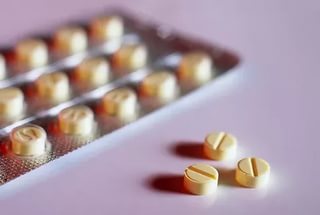
In particular severe cases traces of blood can be found in the urine. If they appear, then contacting a doctor should be immediate.
How to get rid of pain with the help of folk remedies
Like any other disease, it is possible to alleviate the condition with cystitis with herbal medicinal herbs.
- Rosehip decoction. Take 2 tablespoons of its crushed roots and add to a glass of hot water. Bring the mixture to a boil and cook over medium heat for a quarter of an hour. After we let it brew for 2 hours and decant. This decoction is taken 4 times a day, 150 ml before meals.
- Drink their horsetail and chamomile. Take one tablespoon of dried chamomile flowers and horsetail. Pour the dry mixture with 2 cups of boiling water. You can take it during the day.
- Means based on honey and vinegar. In a glass of warm water, mix one teaspoon of honey and half a teaspoon of apple cider vinegar. You can drink this drink every day until the pain subsides.
Prevention of cystitis
It is much easier to prevent a disease than to treat it. Compliance simple recommendations help prevent cystitis.
- Proper personal hygiene. When taking a shower, rinse with water from front to back.
- Correct use toilet paper. Movement must also be from front to back to avoid being hit. coli in the urethra.
- Timely change of sanitary pads or tampons during menstruation. The blood remaining on the pad is an excellent environment for pathogens.
- Uncontrolled use oral contraceptives. Girls who take them get cystitis more often.
- Hypothermia of the body. Dressing for the weather, wearing warm and waterproof shoes is important for the health of every person.
Sometimes, during an exacerbation of the disease, it is not clear how to quickly relieve pain. Don't panic. It is enough to take an anesthetic to relieve the first symptoms and pain of any severity, and consult a doctor. After the examination, a treatment will be prescribed that is aimed at a specific pathogen. With timely therapy, cystitis will no longer bother.




